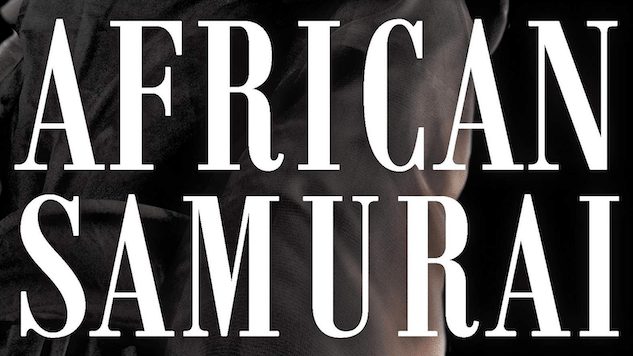This African Samurai’s Biography Reveals Why Historical Representation Matters

African Samurai cuts through our preconceived notions of the past.
Thomas Lockley and Geoffrey Girard’s biography of Yasuke, an African slave-turned-mercenary who became Japan’s first foreign-born samurai, is an extraordinary story that feels especially poignant today. Lockley, an associate professor at Nihon University College of Law in Tokyo, wrote the first academic paper describing Yasuke’s life. African Samurai adds flesh and blood (and smoke and entrails and steel) to the paper’s bones, chronicling a history that reads like a legend.
Yasuke was taken by slavers from his village near the Nile and dragged to modern day Sudan, where he was bought and sent to India to serve as manpower for the Portuguese. He eventually came to the attention of Alessandro Valignano, a Jesuit on mission in China, Korea and Japan who answered only to the Vatican. In Yasuke’s imposing height—sources record him as 6’2” at least, roughly on par with 7’ today—immense strength and years of being a soldier, Valignano found a perfect bodyguard.
That’s how Yasuke ended up in Japan—first protecting Valignano on an island hostile to the Jesuit faith, and then being “gifted” to Oda Nobunaga, the most powerful warlord in Japan. For Yasuke’s service, Nobunaga made him a samurai and gave him a home, servants and a salary.

 We have passed the tipping point when it comes to understanding the power of representation—of the ability to see oneself in any societal role. We are demanding to see ourselves in our politicians, business leaders and innovators, in our major network comedy slates, movie screens and museum walls. We also demand more representation in our history, wresting away the prevailing narratives from the “victors” who wrote them. It’s time to highlight the people who have been erased.
We have passed the tipping point when it comes to understanding the power of representation—of the ability to see oneself in any societal role. We are demanding to see ourselves in our politicians, business leaders and innovators, in our major network comedy slates, movie screens and museum walls. We also demand more representation in our history, wresting away the prevailing narratives from the “victors” who wrote them. It’s time to highlight the people who have been erased.
Yasuke is a strong example: a slave-turned-samurai battling his way across the brutality of late-1500s Japan. A living person rather than a flat character, he acquires real power beyond that of a warrior. While the Japanese, unfamiliar with foreigners at the time, first identified Yasuke with their gods and demons—many of whom were traditionally depicted with black skin—Nobunaga viewed him as more than a novelty. Yasuke’s intimidating presence was also backed by martial mastery and a true gift for warfare.
African Samurai’s intimate scenes of slaughter remind us that too often, one’s place in history is written in blood. But Yasuke was not only a warrior; he mastered numerous languages and understood vastly different cultures. He fit into Japanese society, picking up the language and etiquette as well as he did the sword and naginata. In this biography, Yasuke’s story expands from a historical footnote to a three-dimensional life.
Retroactive representation is as important as modern representation; while the latter tells us what we may become, the former tells us what we have already achieved. Historical representation gives us the blessing of more stories to tell and to dream, including that of an African samurai who tore through barriers like a spear.
B. David Zarley is a freelance journalist, essayist and book/art critic based in Chicago. His work has appeared in The Verge, The Atlantic, Quartz, Hazlitt, VICE Sports, Chicago Magazine, Sports Illustrated, New American Paintings, the Myrtle Beach Sun News and numerous other publications.







































